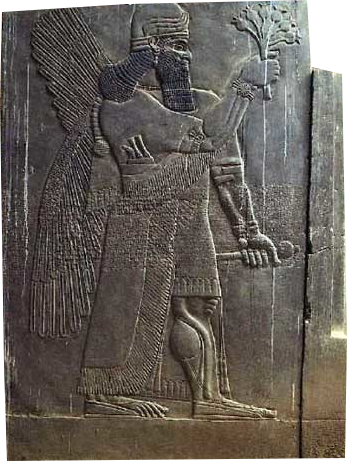Ancient Psychedelia: Alien Gods & Mushroom Goddesses
Online Book - Chapter 11, Page 178
Back to Online Book Mainpage / Next Page (Chapter 11, Page 179)
| The Opium poppy has played a significant role in the plant kingdom worship by ancient cultures going back thousands of years as well. A terracotta idol residing in the Heraklion Archaeological Museum, dating from 1400 – 1100 BC, discovered in a sanctuary in Gazi, Crete, has a Minoan goddess with definite opium bulbs above her head, indicating her association with the narcotic medicine. It is quite rare in the ancient world, to have goddesses associated with other herbs or plants than the mushroom but when it does occur, they are always intoxicating varieties. (21) In another example of opiate writings from the early Greek era, Homer, in the Odyssey writes: “She lost no time, but put something into the wine, a drug potent against pain and quarrels and charged with forgetfulness of all trouble; whoever drank this mingled in the bowl, not one tear would he let fall the whole day long, not if mother and father should die, not if they should slay a brother or a dear son before his face and he should see it with his own eyes. That was one of the wonderful drugs which the noble Queen possessed, which was given her by Polydamna, the daughter of Thon, an Egyptian.” (22) A relief from the Palace of King Ashurnasirpal II, shows one of the Apkallu with opium poppies in his hand (23a). A black granite sarcophagus from Egypt dating to approximately 300 BC, was discovered to have three gold sheets with designs on them, one of which was an opium poppy. The other two gold sheets had corn and a serpent on them. (23) Virgil, in the Aeneid, writes about the sleep-inducing poppies fed to the dragon of the Hesperides who guards the “holy branches of the tree”: “Thence a priestess of Massylian race has been shown me, warden of the fane of the Hesperides, who gave dainties to the dragon and guarded the sacred bows on the tree, sprinkling dewy honey and slumberous poppies.” (24) Dewy honey is very likely a metaphor for the mushrooms. And we see the term “bows” employed to designate tree branches. Take notice fellow detectives! One of the effects opium has that benefits the Patriarchy is the use of it for dulling senses, makes men braver, and ready to go to war. It helps alleviate the suffering brought on by war as well. Opium may have been a contributor to mankind’s move towards Patriarchy. (25) The Greek patriarchs were a warring and conquering people, unlike the romantic portrayal of their culture. They repeatedly wiped out clan after clan of earth goddess worshipers while continuing themselves to use the mushroom and employ it into their art and culture. Thucydides (460-395 BC), an Athenian historian and general, writes: “It should be explained that in early times both the Hellenes and the Barbarians who dwell on the main land near the sea, as well as those on the islands, when once they began more frequently to cross over in ships to one another, turned to piracy, under the lead of their most powerful men, whose motive was their own private gain and the support of their weaker followers, and falling upon cities that were unprovided with walls and consisted of groups of villages, they pillaged them and got most of their living from that source. For this occupation did not as yet involve disgrace, but rather conferred something even of glory.” (26) |
So, apparently, there was no shame in killing women and children, for the Greek patriarchs, at least. Continuing, Thucydides writes: “As Hellas grew more powerful and continued to acquire still more wealth than before, along with the increase of their revenue tyrannies began to be established in most of the cities, whereas before that there had been hereditary kingships based on fixed prerogative. The Hellenes began to fit out navies, too, and to apply themselves more to the sea.” (27) So, the Greeks were actually people who went out of their way to make war and to destroy tribes, cities and cultures. Let’s not forget that. Not only that, but some of the Greeks actually got caught up in the propaganda, believing their own mythology. One would think it impossible, but just look at the state of the world today and what people believe.  (23a) Relief in Palace of King Ashurnasirpal II (21) The Great Mother, p. 300 (22) Odyssey, IV, 220ff (tr. W.H.D. Rouse) (23) https://www.livescience.com/63384-black-sarcophagus-alexandria-inscriptions.html?utm_source=lsa-newsletter&utm_medium=email&utm_campaign=20180823-lsa (24) Virgil, Aeneid, IV, 486 (25) The Great Mother, p. 301; Lewin, Phantastica, P.45 (26) Thucydides 1:5 (27) Thucydides 1:13 |
Go Back to Page 177